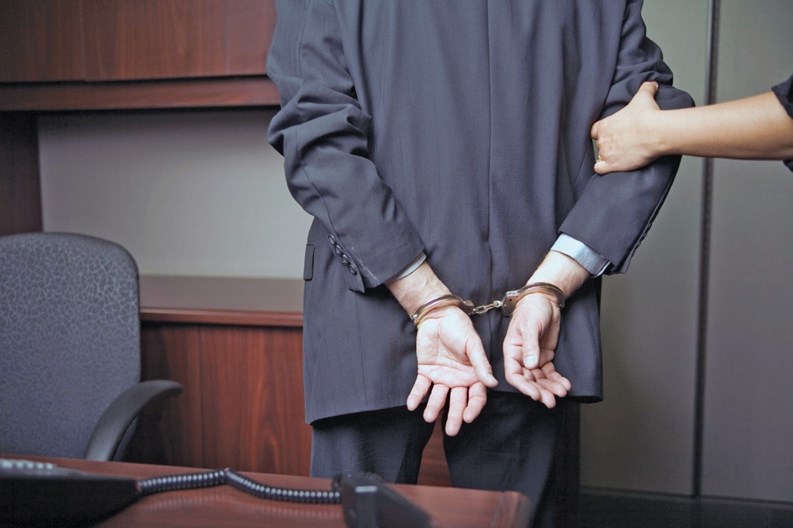Few things can be as upsetting as discovering that the dollars and cents that fuel a community association have been mishandled or worse yet, stolen.
For residents, fraud undermines their sense of trust in the men and women who oversee and manage the place they call home. For managers and board members, it can breach the trust that exists between each other, wreaking havoc not only on the bottom line but on the very fiber of the community itself.
In these days of Bernie Madoff pyramid schemes and the tumult on Wall Street, knowing how to detect andprevent fraud has become even more important to unit owners, managers and boards.
Looking over the variations on fraud and malfeasance, accountants practicing in the community association field seetwo types of shenanigans, one mostly confined to newer condos and the second with older, more established condos.
New Condos at Risk
New condos that are still under a developer’s control are vulnerable to a variety of schemes, most of them orchestrated by the developer himself, says Anthony “Tony” Carideo Jr., CPA, with Wolf & Company, PC, in Boston. “I think more of the frauds happen in the early years, when the condo isn’t established,” he says.
When many condominiums are just getting started, says Carideo, in many cases “the developer is the sole trustee, for about five years.”
During that time period, the developer is mandated to contribute monthly fees to the condo association, but he may be dodging that duty withfinancial shell games, says Carideo.
“Developers usually have a couple of projects” at once, along with a variety of side businesses like landscaping and plowing firms, he says. The developer may say “I owe condo fees on all these units that aren’t sold yet, but I pay all these condo bills with this other company other there,” he says. “What they [developers] do is they have their guys come and do plowing and landscaping and nobody writes any checks.”
To prevent suspect dealings on condo services, owners should insist that “everything should be done by check. There shouldn’t be any offsetting between companies,” he says. “Make sure the developer is not doing business with related companies that he might own, and also make sure they’renot swapping out services,” he says.
Another scheme a developer may engage in is to overpay his “buddies” for community association services and then get a kickback or concession from the buddy in return, says Carideo.
For example, “He [the developer] gives out a landscaping contract for $20,000 and all the competing bids were $10,000,” says Carideo.
“You’ve really got to make sure the condo association is getting competitive bids for its services and the bids are being reviewed to make sure the prices are representative,” he says.
Dishonest bid practices aren’t confined to developers alone, but can alsohappen in older community associations between established property managers and their associates, warns Thomas Foley II, regional manager at Pieciak & Company, PC, based in Brattleboro, Vermont, with offices across New England.
The kickbacks usually happen between the property manager and “a close friend, a family member they don’t disclose,” says Foley.
The kickback might not even involve a cash payment, says Foley. “The landscaper wins the [condo] bid and all of a sudden they’re doing the work [for free] at the president of the management company’s house.”
Precautions against kickbacks involve inviting many vendors to bid, to making sure the bids “are opened at the same time in front of the board of trustees,” says Foley. When the management company is involved in collecting the bids, Foley advises that board make sure “they [the management company] don’t get to review the bids.”
Something’s Fishy
Once the condo has moved past the developer phase and been turned over to the unit owners, what are the tell-tale signs that fraud or embezzlement may be going on?
One of the clearest signs of potential fraud is a lack of maintenance, according to Foley. “When maintenance doesn’t appear to be getting done. When the condo doesn’t seem to be maintained and you know everybody’s paying their condo fees, the money could be siphoned off,” he says. Other tell-tale signs include the trustees not sending out next year’s budget on time and insurance cancellation notices on the master policy, meaning insurance premiums are being skipped, Foley says.
Other, more subtle, signs include “excuses of why bank reconciliations aren’t complete,” Foley says, noting reconciliations confirm actual cash against the bank statements. Finally, Foley says, excuses about cash shortagesmay herald high jinks. “There may be months where the cash should be there, but the cash isn’t,” he says.
Stopping It Before It Starts
With fraud, by the time money has been lost, the proverbial horse is well out of the gate. So what’s the best way to prevent it before it starts?
One of the best fraud-prevention tactics is a requirement for dual signatures for all checks, says Carideo, who is also a trustee at a condominium. “It’sa good practice to have two trustees sign the checks. Otherwise the checks can’t be cashed,” he says. “At my association we print on the checks ‘Two signatures required,’ and have two signature lines. The bank won’t cash it without the second signature.”
Making sure the financial duties are spread among a number of people is another key to preventing fraud, says Sharyl Chamberlain, CPA, a manager with Walter & Shuffain, PC, in Boston.
“There’s a need to segregate duties. Whoever puts the money in should not be getting the bank statement. The bank statement should be sent to the board, or someone higher up, but always someone different than the person receiving the money, and the person cutting the checks.”
The need to separate the duties is especially important in smaller condos, which are particularly vulnerable to theft, she says. “In smaller ones, you typically have one bookkeeper and they’re doing everything. They’re taking the money in. they’re doing the deposits. They’re doing the bank statements and reconciling,” she says.
Although smaller condos have less staff and board members to spread duties around to, Chamberlain says they need to make an extra effort to diversify financial tasks.
Carideo advises his condos to have at least two trustees review all outgoing checks. That practice can detect one of the worst types of frauds he has seen recently – checks being written to dummy corporations that trickle back to the person authoring the drafts. “They’re writing checks to fake companies. It’s really incumbent upon the trustees to at least review the bankstatements and checks. It all comes down to at least two people doing it,” he says.
Two recent cases in the news highlight how the tough economy has made condominiums more susceptible to theft. In one case, a Suffern, New York man was arrested for allegedly stealing more than $130,000 from his condo association where he served as treasurer. In that position, he prepared monthly written financial statements for the board containing false information to hide the thefts. The district attorney’s office alleges that between January 2004 and November 2009, the treasurer is believed to have stolen $130,345 from the Sussex Condo-minium III, while holding the treasurer’s position on the board. From January 2004 until November 2009, he wrote 47 checks from the association’s checkingaccount that were made payable to himself and relatives, according to prosecutors. If convicted, he could face five to 15 years in state prison.
The second case happened at a Jacksonville, Florida condominium, where the manager pleaded guilty to embezzling nearly $167,000 from the association’s bank account over a seven-year period.
The now-former manager of the Timuquana Village Condominium Association paid back the money but was sentenced under a plea agreement to 10 days in jail to be served on weekends. She also must perform community service. An audit revealed that she wrote checks to herself from the association’s account for personal items from 2002 until June 2009, when she resigned. She had been association manager since 1988.
Looking Over One’s Shoulder
Another way to keep fraud from happening involves ratcheting up the fear of being caught, says Chamberlain.
“The perception of detection is the strongest deterrent you have out there,” says Chamberlain. “If people see someone is looking over their shoulder, they’re less apt to do something. If someone sees no one’s looking, they may say ‘I have this opportunity [to steal].’”
Keeping the possibility of getting caught upfront is important because most people who steal don’t start out looking to commit a crime, says Chamberlain. “People who run into trouble don’t always mean bad. They might have a [financial] pressure [and say] – ‘I’m just going to borrow it for a bit.’ They never start out saying, ‘I’m going to do this.’ A lot of the time, things happen. They did it once and they got away with it, so they do it a little more and it just ends up piling up. So a lot of times it’s very gradual.”
Money handlers who want to stay honest in the midst of financial pressures can use a little help staying on the straight and narrow, she says. “Most of the time it (stealing) occurs because there’s a lack of oversight – someone’s not looking out.”
Contact Your Lawyer
What happens when evidence of potential fraud surfaces? Where does a board turn? Typically, boards will consult both an attorney and an accountant.
Foley advises condos who feel something is wrong to hire a forensic accountant to probe their suspicions.
After a forensic accountant is called in, “they get a brief summation of what the association may feel is wrong” and then the forensic accountant will examine the bank records for a period of six or more months, he says. “The investigation would start with a certainperiod of time and if improprieties are discovered, they would expand the period of investigation,” says Foley, a forensic accountant who recently performed an investigation over an 18-month period which uncovered a $15,000 theft.
Chamberlain, a Certified Fraud Examiner (CFE) and forensic accountant, says most condos that have been victimized by fraud are more interested in getting their moneyback than proceeding with legal actions, which can prove expensive.
“A lot of time we end up settling because these things (legal actions) candrag on and rack up incredible fees. Most companies will have a surety bond on their employees for fraud, so they can recover the money,” she says, noting most management companies and large condominiums carry bonds on money handlers.
Unfortunately, Chamberlain expects to be busy ferreting out fraud in the near future as the financial picture continues to be grim. “I expect to see a lot more cases coming out, especiallyin the next year,” she says.
Jim Douglass is the managing editor of New England Condominium magazine. Writer Liz Lent contributed to this report.







Leave a Comment